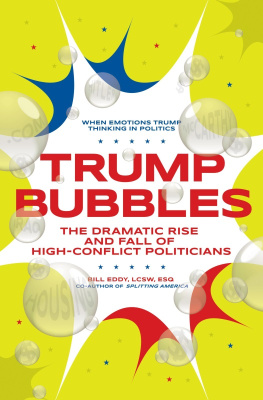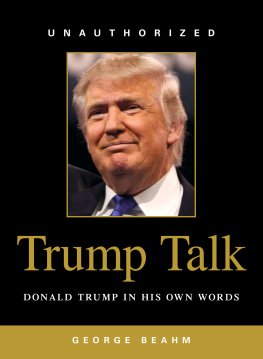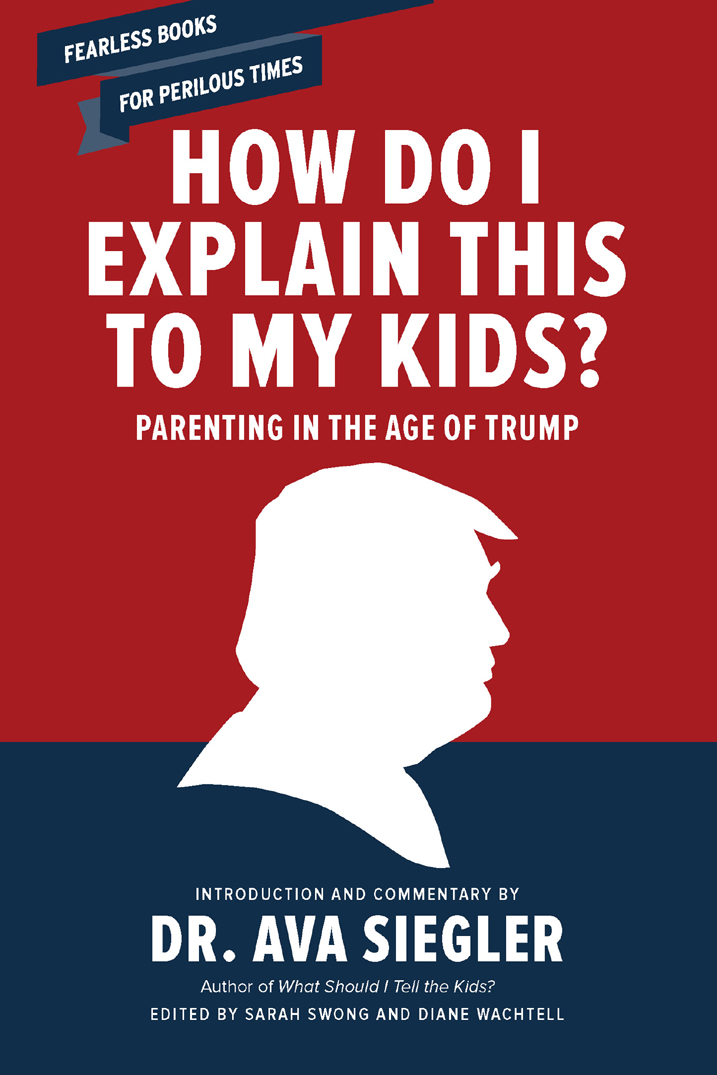
Also by Dr. Ava Siegler
What Should I Tell the Kids? A Parents Guide to Real Problems in the Real World
The Essential Guide to the New Adolescence: How to Raise an Emotionally Healthy Teenager

Compilation 2017 by Sarah Swong and Diane Wachtell
Introduction 2017 by Ava Siegler
Commentary 2017 by Ava Siegler
Excerpted lyrics from Leimert Park from Leimert Park 2012 by Kamau Daood.
Reprinted by permission of Kamau Daood. All rights reserved.
All rights reserved.
No part of this book may be reproduced, in any form, without written permission from the publisher.
Requests for permission to reproduce selections from this book should be mailed to: Permissions Department, The New Press, 120 Wall Street, 31st floor, New York, NY 10005.
Published in the United States by The New Press, New York, 2017
Distributed by Perseus Distribution
Pages 169 through 170 constitute an extension of this copyright page
978-1-62097-357-8 (e-book)
CIP is available
The New Press publishes books that promote and enrich public discussion and understanding of the issues vital to our democracy and to a more equitable world. These books are made possible by 1the enthusiasm of our readers; the support of a committed group of donors, large and small; the collaboration of our many partners in the independent media and the not-for-profit sector; booksellers, who often hand-sell New Press books; librarians; and above all by our authors.
www.thenewpress.com
Book design and composition by Bookbright Media
This book was set in Janson Text and Gill Sans
Printed in the United States of America
10 9 8 7 6 5 4 3 2 1
Contents
Table of Contents
Guide
You tell your kids: Dont be a bully... dont be a bigot... do your homework and be prepared. And then you have this outcome.... You have people putting children to bed tonight, and theyre afraid of breakfast. Theyre afraid of How do I explain this to my children?
Van Jones, 1:22 a.m., November 9, 2016
THE ASCENDANCE TO THE PRESIDENCY OF DONALD TRUMP, A MAN who seems determined to dismantle many of the progressive achievements of the last fifty years, has shocked, saddened, and frightened a majority of Americans. Some of President Trumps uninformed, volatile, and perilous decisions are likely to have catastrophic effects upon our families, our towns, our republic, and our world. Some of his cabinet appointments have already appeared ignorant at best, and dangerous at worst. And his interactions with both friends and foes around the globe seem destined to heighten rather than abate conflict. Beyond these threats to our democratic way of life, Donald Trumps performance during his campaign and presidency has seemingly validated a long list of behaviors we strive to get our children to recognize and reject, from rudeness, prejudice, and bullying to dishonesty, greed, and shamelessness.
Trumps anti-immigrant, misogynistic, racist, anti-intellectual, anti-LGBTQ, and anti-disabled policies are threatening to all Americans, including children; they are destructive to our core values. His personality is destructive, too. Hes impulsive, manipulative, vitriolic, self-aggrandizing, and aggressive, and has a poor capacity to regulate any of these traits; he lacks morality, self-reflection, and self-restraint. And he is not alone. He has assembled a group of men (and a very few women) around him who appear to share his views. In addition, some Americans outside of government feel liberated by Trumps excesses. They embrace his lowering of the national discourse and have interpreted his pronouncements on immigrants and other minority groups as an open invitation to vitriol and violence.
Many members of the Republican party, while expressing private dismay at his more outrageous behavior, seem intimidated and completely unable to speak out against him (despite the fact that many of them were mocked and humiliated by him during his campaign). Those who bow to Trumps threats do not seem to understand the axiom that you cannot accommodate to a bully, nor normalize his aggression. But in a more heartening response, we have seen millions of Americans rise up in protest and resistance.
In the Age of Trump, our task as parents of the next generation becomes more crucialand more complicatedthan ever. We must shield our children from the effects of Trumps policies as best we can and protect them from the worst aspects of his character. But we must also try to explain to them how someone like this could have been elected to the highest office in the land, and why our country seems to have rewarded behavior that most of us condemn. At the same time, we must educate our children to be informed, committed, respectful, and engaged citizens, and we must include them in our resistance against Trumps regime so that when it is time for them to vote, they will never again let someone like Trump become president.

The first part of this book brings together moving and eloquent essays by parents who are deeply frightened, angry, and sometimes despondent about the presidency of Donald Trump. Each parent has an important, often profound story to tell, a story that reveals their own reactions to Trumps presidency, the reactions of their children, and the various ways they have communicated with their children in the wake of the presidential election. Some of these stories remind us that racism has a long history in our country, and Trump is just our most recent bigoted example. Some express parents fears that they and their children will never feel safe and secure again. Some parents worry that the democratic values we hold will be irrevocably harmed. But some express their hope that times can change and that they and their children will become agents of that change.
In this regard, the Trump presidency has had significant unintended consequences; we are seeing a more extensive and more powerful opposition to this president than ever before. This new groundswell of social activism is awakening people all over the country to stand up and be counted in the protest against Trump. (There is even a Trump Regrets Twitter account, which retweets statements of outrage and disappointment by those who voted for the president.) The groups Trump has targeted, including Muslims and Mexicans, are being supported by hundreds of thousands of Americans who are raising money for them, training to defend immigrants from deportation, creating safe sanctuary zones, and calling out the cowardice of their congressional representatives. If anything good emerges from these next years, it will be this unprecedented national response. The millions of women and men and children who have taken to the streets, the judges who have rallied to defeat the administrations unconstitutional orders, and the mayors and governors who have created and are protecting their sanctuary cities all demonstrate this unique call to social action. As parents, we hope our children will continue this civic commitment into the next generation.
In the second part of the book, I have tried to illustrate the ways in which an understanding of your childs ongoing development, the power of conversation, the contribution of narrative, and the commitment to action can help strengthen you and your child to master the social, emotional, and political challenges that lie ahead. I have been a clinical psychologist in practice for over four decades. My specialty is child and adolescent development, with a particular focus on helping parents talk to their children about difficult topics. (Ive written a popular book on that subject as well.) Many of the issues raised by the Trump presidency are not new. Parents have always struggled to help their children in the face of bullying, lying, bigotry, and significant threats to their safety and well-being.












